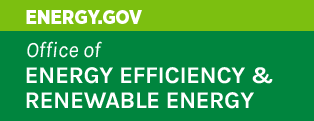Natural Gas Vehicle Technology Forum Fall 2003 Meeting Summary
A Natural Gas Vehicle Technology Forum (NGVTF) Technical Committee Meeting was held September 9-10, 2003, in Albany, New York.
Meeting Summary
This NGVTF Technical Committee Meeting was held at the New York State Department of Transportation offices in Albany, New York. One purpose of the meeting was to communicate the status of DOE NGV activities as well as activities in New York, Texas, and California, and to facilitate coordination among these groups. Presentations provided updates on state legislation that affects NGV deployment and the status of implementation projects that are using existing NGV technology. Other presentations addressed the status of natural gas supply, home fueling, the role of NGVs in a transition to hydrogen, and more.
To request a specific presentation from this meeting, contact NGVTF.
In addition to the published presentations, Joe Darling of NYSDOT commented on the status of LNG in New York, where use of LNG for vehicles is currently banned. An LNG Steering Committee is working to persuade the New York legislature to lift the ban. NYSDOT Commissioner Joseph Boardman also stopped by to address attendees. He stressed the importance of having technical experts, such as those assembled at this meeting, to educate political figures about what works and what doesn't work when it comes to alternative fuels.
Following up on a hot topic from last January's NGVTF meeting, George Kalet of NexGen Fueling provided a status report on the "softening" of vacuums in LNG storage tanks. He said NexGen has improved its tank production process to mitigate the problem. He also said that NexGen has field-serviced the vacuums on 1200 LNG tanks since January 2003.
Nick White of Charonic Canada, Inc. provided an update on a recent NGV tank rupture in Canada. Preliminary investigation suggested that the rupture was caused by "massive corrosion" of the Type 1 tank, which had not undergone prescribed inspections.
The importance or unimportance of having 99% methane content in LNG generated considerable discussion. Having 99% methane gives a predictable LNG content, and industry seems to be leaning this way, said Brian Stokes of Pacific Gas and Electric. On the other hand, more impurities in LNG may improve fuel economy, and new closed-loop engines can handle the impurities, Stokes said. The impurity fraction in LNG may increase over time because of methane venting.
Another hot topic was providing an "apples-to-apples" comparison of NGV and clean diesel technologies. One issue was that engine dynamometer data cannot be compared directly with chassis dynamometer data. Nick White suggested a potential project using engine maps to simulate real-world emissions of various technologies and applications.
Are you looking for technical information about NGVs and NGV codes & standards? Hank Seiff of the Natural Gas Vehicle Coalition (NGVC) reported that NGVC received a grant, from DOE's Brookhaven National Laboratory, that enables them to offer enhanced assistance to non-NGVC-members for a 6-month period free of charge.
About 60 people—including representatives from industry, government agencies, and national laboratories—attended the meeting. The meeting coordinators collected written comments from attendees and will use this feedback for planning future NGVTF meetings. The comments indicated that the following aspects of the meeting were particularly useful:
- Regional perspectives (e.g., NGV activities in New York, California, and Texas)
- Updates on NGV technology and issues
- Gas supply update
- Information on landfill gas to LNG technology
- Information on FuelMaker home refueling
- Networking with fellow NGV stakeholders
- The overall variety of topics/presentations
The comments also indicated that the following additional topics are of interest for future NGVTF meetings:
- International and domestic NGV market development
- Competing fuels (e.g., "clean diesel")
- Perspectives from NGV manufacturers
- CNG/LNG cost analysis
- Clean Cities Tiger Teams activities
